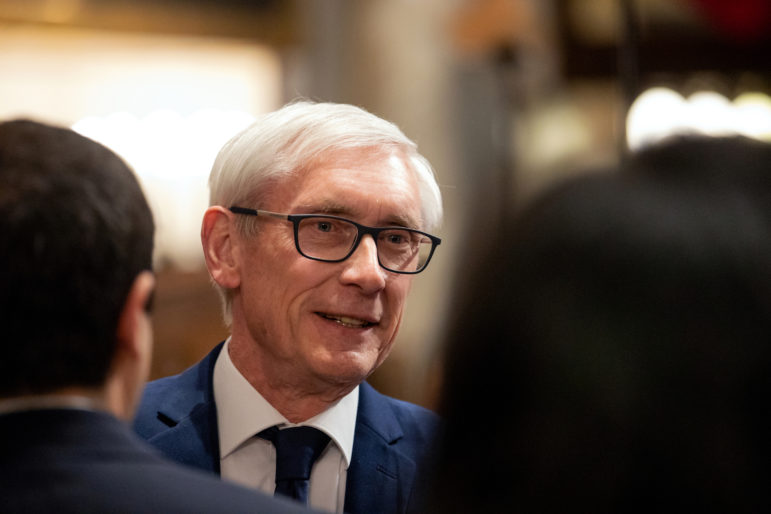Should U.S. Supreme Court Rule On Evers News Conferences?
WILL and Walker say Evers must invite conservative group to media events. Are they right?
The U.S. Supreme Court has a long list of important issues to rule on this term: Texas and Mississippi anti-abortion laws, 2nd Amendment gun rights, religious liberty, disability discrimination and national security. So don’t be surprised if the nine justices can’t find any time to decide who Democratic Gov. Tony Evers must invite to his news conferences.
After federal judges twice ruled against it, the conservative law firm Wisconsin Institute for Law & Liberty (WILL) filed a petition with the U.S. Supreme Court telling those justices that lower courts interpreted the U.S. Constitution incorrectly.
Officials also make themselves available in one-on-one interviews to media organizations they favor. And they email blizzards of press releases providing information without making themselves available to reporters.
Elected officials hold news conferences everywhere and anywhere they and their aides think will help them politically. Evers, who is up for re-election next year, held news conferences in Milwaukee, Oneida and Manitowoc over four days recently, for example.
Like governors before him, Evers and his administration pick and choose who they invite to news conferences. When reporters for the conservative MacIver Institute weren’t invited to the briefing that previewed the first Evers budget in 2019, and other newsmaking events, the Institute sued in federal court.
Although aides to former Republican Gov. Scott Walker also handpicked who they invited to news conferences, Walker joined WILL’s petition seeking U.S. Supreme Court review. The Evers Administration’s practice amounts to illegal censorship, Walker and WILL insisted.
Federal judges disagreed, ruling that governors are allowed to hold events with some media organizations but not others. Judge Ilana Rovner, writing for the 7th Circuit Court of Appeals, said, “We find that the Governor’s media-access criteria are indeed reasonable and not an effort to suppress MacIver’s expression because of its viewpoint.”
Rovner added: “We cannot fathom the chaos that might ensue if every gubernatorial press event had to be open to any ‘qualified’ journalist with only the most narrowly drawn restrictions on who might be excluded.”
Rovner was the first woman appointed to the 7th Circuit Court of Appeals. But Rovner has never been a reporter up against a deadline with an angry editor asking, “Why weren’t you at that news conference?”
All elected officials, and appointed cabinet secretaries and local government officials, hold positions of public trust. Part of that trust is the obligation to explain to those who elect them, pay their salaries and fund their programs, what they are doing and why.
So, if they want to send reporters, news organizations must immediately respond, telling aides to the governor who from their organization will attend. If capacity limits mean a MacIver Institute reporter physically can’t come to the Governor’s Conference Room, she or he can watch it live on WisconsinEye or a livestream provided by the Evers Administration.
Yes, the Covid pandemic changed all the rules for attending news conferences. But Evers Administration notices of news conferences now include warnings that Covid safety restrictions will be enforced.
Rovner warned that “chaos that would ensue” if all news organizations who regularly cover the Capitol must be invited to news conferences. But one judge’s perceived chaos is a journalist’s First Amendment right.
Steven Walters started covering the Capitol in 1988. Contact him at stevenscotwalters@gmail.com
If you think stories like this are important, become a member of Urban Milwaukee and help support real, independent journalism. Plus you get some cool added benefits.
The State of Politics
-
A Wisconsin Political Trivia Quiz
 Dec 15th, 2025 by Steven Walters
Dec 15th, 2025 by Steven Walters
-
The Fight Over Wisconsin’s House Districts
 Dec 8th, 2025 by Steven Walters
Dec 8th, 2025 by Steven Walters
-
The Battle Over On-Line Betting
 Nov 24th, 2025 by Steven Walters
Nov 24th, 2025 by Steven Walters























Maciver is a propaganda outlet.